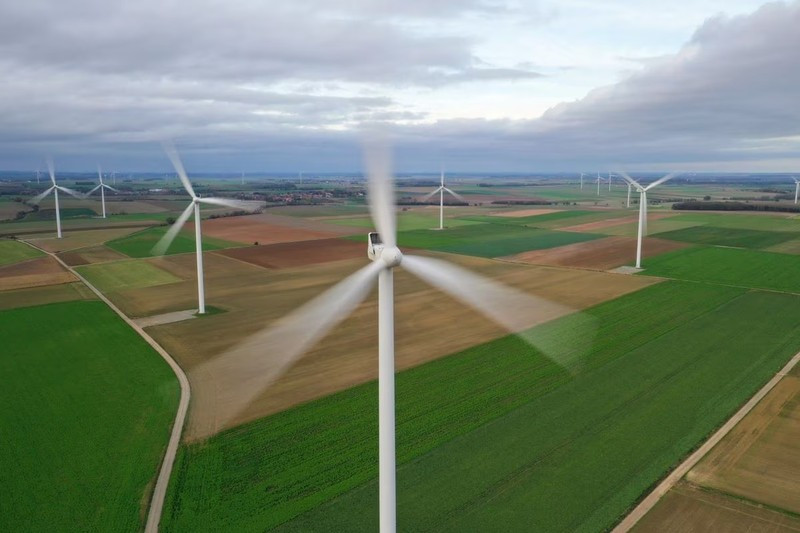According to a report by Bloomberg NEF, a global research and consulting organisation in the field of clean energy, the world has witnessed investment in the development of clean energy sources and alternative fuels, at a level equivalent to the investment in exploiting fossil energy sources such as oil, gas and coal, for the first time. In 2022, the world invested a total of 1.1 trillion USD in clean energy development projects, a year-on-year increase of 31% and close to the level for fossil fuels. Investment in solar and wind energy accounts for the largest share of clean energy investments in 2022, with 495 billion USD, up 17% from 2021. Global investments in electric vehicles also increased rapidly, at 54%.
However, Bloomberg NEF also noted that investments in clean energy increased in proportion to investments in fossil fuels, as investments in polluting energy sources also increased significantly during the year 2022. Analysts said that the total global investment in clean energy is still too small to cut greenhouse gas emissions and prevent global warming. By the end of this decade, annual investments in the transition will have to triple to achieve the goal of net zero emissions by 2050.
Meanwhile, NewClimate Institute for Climate Policy and Global Sustainability released a report titled “Corporate Climate Responsibility Monitor 2023”, which assesses the transparency and integrity of climate pledges and strategies from 24 of the world’s leading multinational companies in automobile manufacturing, shipbuilding, aviation, fashion retail, high technology, food, steel and cement, etc.
According to the evaluation criteria of experts, the transparency of each business's climate plan depends on the accuracy of the emissions that businesses report by themselves, the targets set to reduce emissions, as well as the progress and compensation plans.
All surveyed businesses are committed to complying with campaigns promoted by the United Nations, to raise their responsibility in global decarbonisation and accept the goal of controlling global temperature rise, at a low level of 1.5 degrees Celsius, under the 2015 Paris Agreement on Climate Change.
The report found that most of these companies' climate strategies are “bogged down” by unclear and unreliable commitments. Despite claiming to be at the forefront of climate action, 15 of the 24 surveyed companies were assessed to be of low or very low integrity in their climate strategies.
To control the rise in Earth's temperature, businesses pledged to cut greenhouse gas emissions by 45% by 2030 and bring net emissions to zero by the mid-century.
However, according to experts, 22 out of 24 companies can only cut about 15% of emissions or 21% of emissions by 2030, in the most optimistic scenario. With total revenue of over 3 trillion USD, the 24 companies mentioned above contribute 4% of total global emissions each year.
When the world is focused on clarifying climate impacts and making efforts to reduce emissions, many businesses take advantage of vague and misleading commitments to “green” brands, said Carbon Market Watch.
This situation has been more serious when businesses associate products with misleading images and information, to some extent that their products, services or activities are environmentally friendly.
Consumers need real green products, not empty promises to the environment and the future of humanity.
















